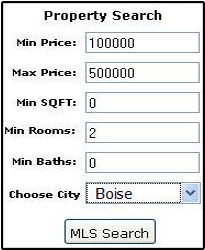Home inspections can be a point of tension for all parties involved. The buyer wants to buy, the seller wants to sell, so what’s the big deal about having the home inspected? The truth of the matter is that clarity about an undisclosed (or simply unknown) problem ahead of time is always better than learning about it after purchasing. After all, as an agent, you want to ensure legal security for everyone involved.
Here’s what you should tell clients to expect when looking for a smooth home inspection.
Why are home inspections important?
Proper home inspection ensures transparency for all parties and reduces the likelihood of unexpected injury or repair after purchase. It can also help an owner determine which renovations are necessary or unneeded, helping them save money.
But it can feel scary for anyone to have a stranger inspect the property on their behalf. That’s why it’s always good to inform clients about what to expect in the process and let them know their rights when planning for an inspection.
Here are some of the main points you should make when talking with clients about home inspections:
1. How Inspections Are Conducted
Inspections are often confused with valuations. While an inspection might reveal damages or hazards that could also affect the value of a property, its main purpose is not to determine the value of a home. Clients should always be aware of this!
Home inspection is visual, and therefore may not reveal any information about the state of a property behind walls or under floors. It may still identify hazards, damage, or foundational problems noticeably in the property, and serves to provide a thorough description about its current state.
Let your clients know that an inspection usually covers:
· The structure of the house; including ceilings, walls, roof, and foundation.
· The exterior of the house; including drainage systems, walkways, and fences.
· Plumbing, pipes, toilets, vents, and faucets.
· Chimneys, air conditioning, furnaces, and heaters.
· Electrical groundings, wires, and panels.
· Dishwashers, garbage disposals, and ovens.
· Garage ceilings, walls, doors, and lights.
It is not legally mandatory for the homeowner to fix any discovered issues on behalf of the buyer after inspection. However, banks may demand repairs before a buyer can be approved for a loan or for insurance. Buyers may make a contingent offer which, even if accepted by the owner, will require certain criteria to be fulfilled. Issues involving repairs may also be cause for renegotiating the price of the property.
2. Unexpected Issues That Might Come Up During Inspection
Part of the purpose of inspection is to uncover issues or problems that aren’t obvious to either the buyer or seller. Therefore, it is important that clients do not feel suspicious, offended, or betrayed if such issues come up.
Professional home inspectors tend to perform a more thorough and intensive evaluation than city inspectors—the latter are just checking for compliance with specific ordinances and laws, not livability or risks for a homeowner.
It’s good to emphasize that the most common issues are likely inexpensive and easy to address. Even cracked foundations, built up moisture, and faulty roofing don’t have to ruin a good deal.
If issues weren’t already noticeable while living in (or walking through) the home, they’re not likely to be major problems. Keep clients focused on using the inspection to move forward with closing a deal, rather than seeing it as an obstacle that will ruin closing.
3. Who Can Be at A Home Inspection
Obviously the home inspector themselves, but who else can (and cannot) attend an inspection? Buyers aren’t always sure if it’s appropriate to attend a home inspection, but it’s usually good to encourage them to attend. Even if no issues are identified, they can ask the inspector to answer any questions or go over how certain features of the property work. Buyer’s agents are also allowed to attend inspections. It’s important to be transparent and listen to the inspector’s definitions—rephrasing what they say for your own benefit can land you in hot water!
On the other hand, while sellers are allowed to be in the home (it is their property) they are not encouraged to attend. The inspection is usually paid for by the buyer, so the inspector is working on behalf of the buyer’s interests and the information they convey belongs to the buyer. Inspectors may tell sellers to stay seated in one room and not follow the inspector to avoid hearing information they are not legally entitled to.
The exact role of listing agents is not clear cut. Sometimes it is considered fair for a listing agent to be present to ensure that the seller’s interests are not being undercut by an inspector working for the buyer. On the other hand, their presence might be considered a breach of security between the buyer and their inspector. Usually, the listing agent will not be present, though it is possible to check with an inspector to see if they can attend.
Becoming a successful real estate agent means constantly expanding your knowledge and assisting clients with new concerns. That means learning about new types of property, staying up to date with state law and procedures, as well as building connections with experts in your field.
Check out our Idaho Course Packages to find affordable courses that will expand your skills as an Idaho Agent today!








